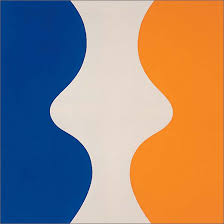Earlier in 2014, I had the pleasure of seeing cellist Charles Curtis perform works by Eliane Radigue and Alvin Lucier at Kings Road Park Pavilion, an extravagant-sounding name for what is essentially a community meeting room at a neighbourhood pocket park in West Hollywood, California. Curtis, who has studied under La Monte Young and Pandit Pran Nath and been a member of King Missile and Borbetomagus, produced an interesting kind of tension among the small, attentive audience that afternoon. He sat stock-still, played quietly, and barely spoke, making the crowd’s ears and eyes work overtime to detect subtle changes in Curtis’s sustained drones, while life went on outside: children played, dogs barked, car horns honked.
That tension among performer, audience, and environmental uncertainties is part of what makes live music so gripping. Recorded music leaves little to chance for the listener, except perhaps the quality of the physical or digital medium as it becomes subject to degradation and other change over time, or as technological advancements render it obsolete. An album’s relative stability is comforting; it’s what we turn to when we don’t want that potential peril, that element of surprise. And yet, sometimes a piece of music doesn’t feel exactly right without the inherent risk that accompanies live presentation.
Such is the case with Tashi Wada’s new album, Duets, his first for his Saltern imprint. Curtis is one of the two cellists on the record, along with Judith Hamann, and he writes in the liner notes about the concept of unison as a "state of complete integration hidden behind the disparity and change caused by the passing of time". There is a challenge on Duets to bring an agreed-upon humanity to what would otherwise be a standard perpetually descending line of music on a staff. It’s Wada’s name on the release — his father is the Fluxist composer and sound installation artist Yoshi Wada, which may lend the affair some extra prestige — but the work lives and dies on the psychic synchronicity of the two cellists, fighting the random spanners hurled through the dimensions. It suggests a highly attuned yet fragile state of concentration that would be fascinating to experience in a live setting. While the audio on its own is lovely, the quality of the document is a trade-off for a more complete picture of what’s actually happening.
A close recording allows for more intimate listening, though. Headphones can do what a seat 10 feet from the stage can’t – let you into those barely perceptible variations in tone and pitch and harmonics that even the most seasoned musicians are liable to have, whether or not they mean to. A card in Brian Eno and Peter Schmidt’s Oblique Strategies deck of creative prompts reads "Honour thy error as a hidden intention." This battle of accident versus intent keeps things stimulating from a consumer’s point of view, since we can never be entirely sure where one ends and another begins.
It’s why we crave music that is organic at its core, that betrays a personal stamp no matter how disembodied the sounds seem. Duets is so warts-and-all, so process-oriented, that Curtis and Hamann’s joint quest for unison amid chaos reveals how the iffyness of meatspace is not merely the condition upon which all art rests; it is the art. It may be trapped in amber, as the four tracks of Duets are, but as the galaxy shapeshifts around us, the constraint is only temporary.


